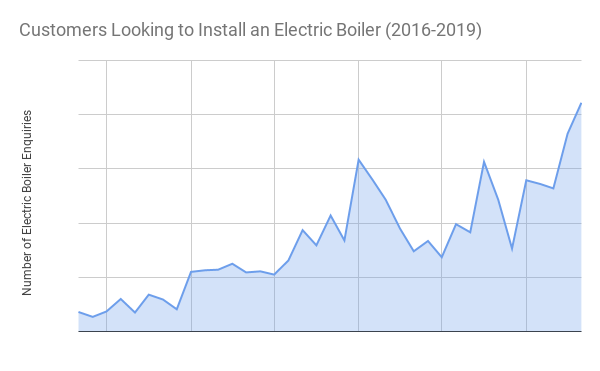Would Heating Installers Benefit from Electrical Qualifications?

Heating installers who add a qualification to work on electrical components to their skillset are removing the need for outside specialist help, opening them up to more work.
So, is earning a qualification to work on electrics the future for heating installers?
As a heating installer, fitting a new boiler and central heating system is part of everyday life but when a job involves electrical components, a qualified electrician is often needed.
This can mean having to wait for the electrician to turn up, time that could be better spent carrying out the work yourself to the standards you pride yourself on as well as removing time spent waiting for an electrician.
Plus, with gas boilers being banned in new build homes from 2025, there's an increasing shift towards renewable heating systems that rely on electrical components. As homeowners seek more efficient environmentally-friendly ways to heat their homes, get ahead of the curve with a qualification to work on electrics.
Benefits of an electrical qualification for heating installers
By adding an electrical qualification to your skillset, you'll benefit in a number of ways, whether you're a sole trader or part of a company:
- Increase the services you can offer to existing and potential customers (including renewable heating systems);
- Open up more opportunities for work during slower periods of the year;<.li>
- Complete work that requires electrical work yourself without the need for an electrician.
Speaking about the benefits available to heating installers who hold a qualification to work on electrical parts, Managing Director of Electrician Courses 4U, Nigel Best told Installer Online: "Whichever way you look at it, subbing out the electrical part of a job can bring with it a lack of quality control that can prove frustrating for you, potentially compromise your reputation and risk antagonising a good customer through no fault of your own.
"Beyond these short term advantages, adding electrical skills to your business will expand the services that you provide to your customers. It will allow you to cover for any business shortfall in your heating and plumbing work that you encounter and give you the chance to balance that with electrical work that you can do, sometimes for the very same customers.
"By offering a more complete service for the home you can make your business more resilient to the tough times and pick up more work from existing and new customers."
Customer interest in electric boilers
At Boiler Guide, we match people across the UK with local heating engineers and we've seen a growing interest in electric boilers over recent years.
In the table below, you can see the number of customers looking for someone to install an electric boiler between May 2016 to May 2019 and the numbers have shot up.

In fact, we've seen a 1,072% increase in the number of people visiting Boiler Guide who are looking to be matched with an electric boiler installer between over the 36 month period.
Expanding on your current skill set with a qualification to work on electrical components could see you take real advantage of the rapidly growing interest in electric boilers, without having to call an electrician at any point.
How to earn an electrical qualification
To show that you're fully-qualified to carry out electrical work around a property, you will need to hold a Level 3 VRQ from either City & Guilds or EAL (Excellence, Achievement & Learning).
There are several courses that will earn you a Level 3 VRQ, including Electrician Courses 4U. The course takes a minimum of 20 days, held in a training centre to provide you with the necessary knowledge to carry out domestic electric work.
Are you a Gas Safe Installer?
Grow your business with access to 1000s of high quality boiler sale leads. Register for free today



